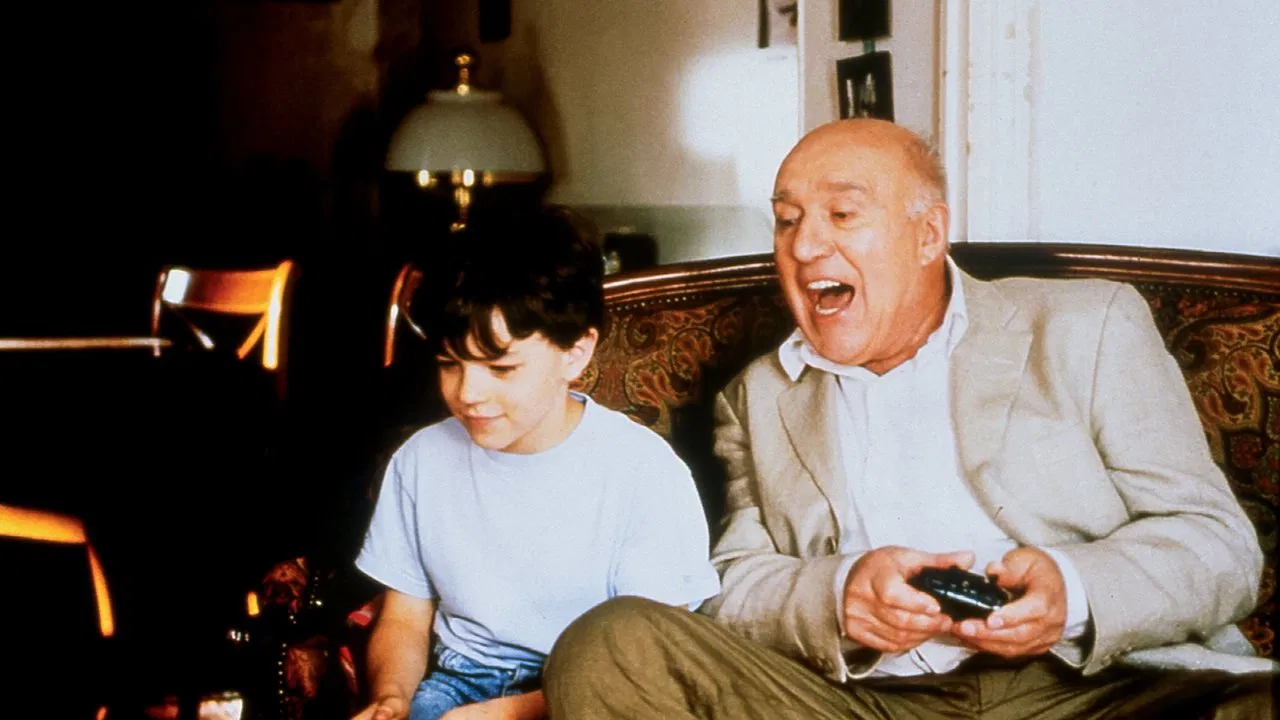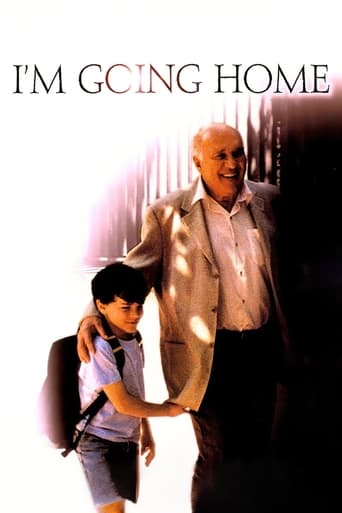Smartorhypo
Highly Overrated But Still Good
Matialth
Good concept, poorly executed.
Senteur
As somebody who had not heard any of this before, it became a curious phenomenon to sit and watch a film and slowly have the realities begin to click into place.
Quiet Muffin
This movie tries so hard to be funny, yet it falls flat every time. Just another example of recycled ideas repackaged with women in an attempt to appeal to a certain audience.
mihaiatanasie-86934
One may be surprised by the first scene of this film. One expects something else but finding oneself in a theater for a Eugene Ionesco play. I dare say that these excerpts of well-known plays are a good hint for the main character's life, an old actor who lives mainly for his art, more on stage than at home (the loss of his family makes him leave in a hurry, but he never cries for that). As a Ionesco fan, I salute the choice of "Le roi se meurt". As a Picoli fan I am surprised a bit by his look, but, well, I was young once, log time ago, and so was he. Anything goes to an end on earth and an actor's career can't last forever. Still, the end is quite surprising, honestly, I thought Valance could resume his work the next day. All in all, I liked the film and I am glad I could see it.
Marnielover
This film by 92-year-old Portuguese film director Manoel De Oliveira is an 86-minute close observation of an elderly actor who seems to be mainly a stage actor. The film opens with a 15-minute scene from Ionesco's "Le roi meurt," in which the actor (Michel Piccoli) goes through the never-say-die speech of the 280-year-old king. After the performance, he is greeted backstage with the news that his wife, daughter, and son-in-law have been killed in a car accident. The rest of the film follows him in his everyday routines, into another performance (this time in Shakespeare's "The Tempest"), and then on to a film of James Joyce's "Ulysses." In between we watch him buy shoes, quarrel with his agent, play with his orphaned grandson, and drink espresso at his favorite cafe.De Oliveira has a habit of filming performances at odd levels. For example, in "Le roi meurt," Piccoli has his back to the camera the entire time. During a quarrel with his agent, only Piccoli's feet in his new shoes are shown. He bashes the heels against the pavement when he's mad, rocks them back and forth when he's pleased--it's all there. When he is playing Buck Mulligan in "Ulysses" we only hear his performance, and gauge it by the reactions on the face of the film director (John Malkovich). The lengths De Oliveira goes to to confound his actors' egos and the audience's expectations are inventive and a bit peculiar.I sensed that this film was more about De Oliveira than about the characters in the story. There isn't much dialog and not much character development. The theme of the king who will not die, who is egomaniacal beyond reason, perhaps is De Oliveira talking to himself. He makes movies into his 90s because it is his habit. He should be dead by now, but he's not, and because of that he has watched everyone he loves die before him. The possibility of trying to start a new life with a young starlet that is offered to Piccoli must also have happened to De Oliveira. He won't make himself ridiculous that way. "I'm not Casals," the actor says when told of the musician's marriage at the age of 82 to a teenager. I can hear our director saying that, too.What he wants to do is stop working, rest, and mourn his losses. This is, I feel, a personal film and all the more moving for it.
George Parker
"I'm Going Home" - a heady subtitled French character study and contemplation which focuses on a bereaved and aging thespian, Valence (Piccoli) - consumes huge chunks of time as we watch the protag perform on stage, buy shoes, get mugged, get made up for a movie, flub his lines, etc. Deneuve and Malkovich are on screen for a heartbeat and the whole messy death of his family thing is skipped over in deference to the lengthy scenes. I was surprised when the film abruptly ended with no climax, no denouement, and no warning...just poof, credits rolling. The bottom line here is this is not much of a movie by the standards of ordinary filmgoers. However, it is fodder for cinematic devotees, critics and industry people, pedants and dilettantes, etc. If you care about such trivia as the director was 90+ years of age, then you may want to give this film a look. If you just want entertainment, think twice. (B)Note: Being surprised when the film ended is a good thing. That meant I was sufficiently engrossed as to not be watching the clock. For what it's worth and it's not much, I enjoyed this film a lot.
claytonlowe
"Je rentre a la maison" opens on the stage of a rather seedy theatre in Paris during the closing act of Ionesco's absurdist drama "Exit the King" - exit the king indeed!Portraying the old king is Gilbert Valence (Michel Piccoli), a well known Parisian actor, who like the king is coming to the end of his career. Piccoli no sooner steps off stage than a group of somber friends deliver to him the bad news that his wife, daughter, and son-in-law have just been killed in an auto accident. All that now remains of his family is his young grandson.In this remarkably understated film Oliveira uses long takes, a rarely moving camera, and natural background sounds to emphasize what's going on in the faces of his actors. After a summer of films like "Fast and Furious," "Rat Race," and "Rush Hour 2" it is a relief to be able to slow down and indulge in the more subtle nuances of the filmic art.One of the movie's most treasured moments occurs when Piccoli is cast in an English-language film based on James Joyce's novel, "Ulysses." Appearing in a cameo role as the director of this movie-within-a-movie is John Malkovich who takes full advantage of Oliveira's long take close-ups of him as he sadly watches Piccoli having difficulties with his lines. The last shot in the film is also a long take of the face of Piccoli's grandson as he watches his grandfather pause on the landing while making his way up the stairs to his room."Je rentre a la maison" is a low-key version of Scott Hicks' more thickly romantic, "Hearts in Atlantis," which has a similar theme.

